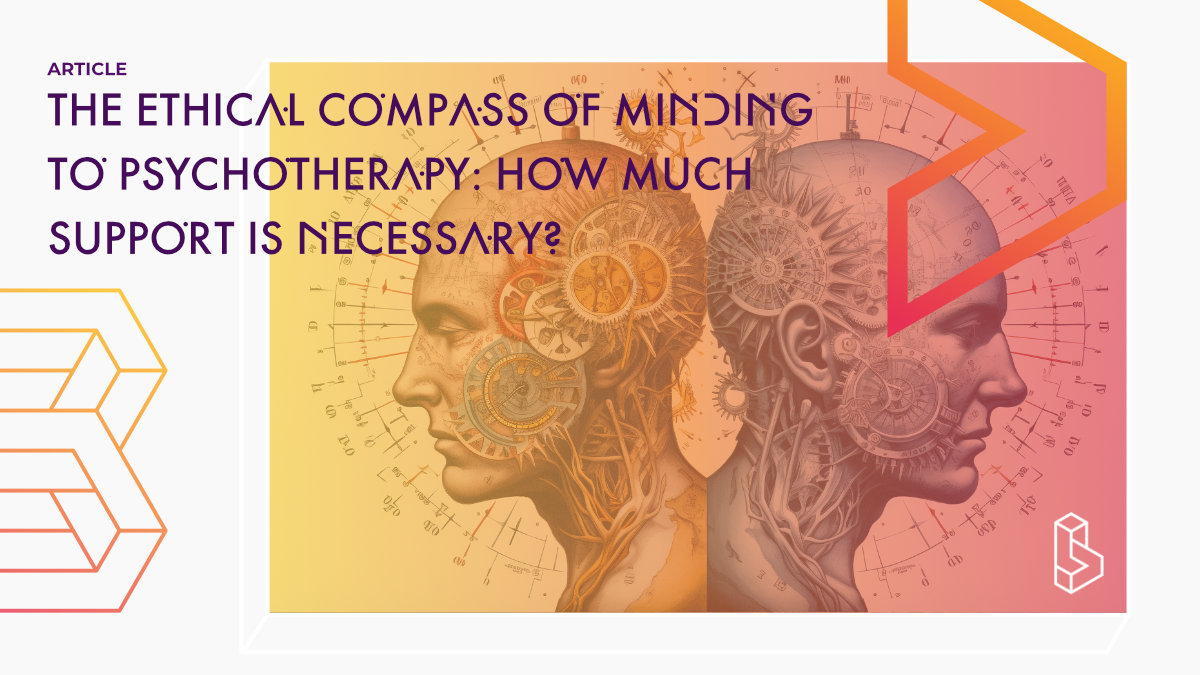Do we need psychotherapy when administrating psychedelics in a medical context?
Isn’t it psychedelics themselves that do the heavy lifting, and the staff is there to prepare and support the patient?
Or, are the well-studied fundamentals of psychotherapy enhanced by a psychedelic experience, justifying the name psychedelic-assisted therapy (PAT)?
This is the setting of the debate between Dr Guy Goodwin (Chief Medical Officer at Compass Pathways) and Dr Max Wolff (Head of Psychotherapy Training and Research at the MIND Foundation).
On a well-organised panel brought together by Jules Evans from the Challenging Psychedelic Experiences Project (see our earlier interview with Jules and Anna Lutkajtis), these two experienced psychedelic researchers shared two different visions on psychedelic treatments, found common ground, and fielded intelligent questions.
Here is Blossom’s recap of the event. Members get full access to the extended notes.
Dr Goodwin’s Case for Prioritizing Substance over Therapy in Psychedelic Treatments
Dr Goodwin questions whether psilocybin must always “assist psychotherapy” or if it can be more of a medical treatment with psychological support. As a psychiatrist, he wants to re-medicalize psychedelic treatment to benefit patients, noting we should think differently about patient populations versus recreational use. Understanding efficacy and safety is key to following FDA guidelines for regulatory approval.
PAT has become a common term, but for Dr Goodwin, it implies the drug is secondary to the therapy. He agrees this framing may be fair for MDMA-assisted therapy but not for high doses of psilocybin or LSD. Still, he wants patients to have support during sessions, calling it “psychological support” rather than psychotherapy.
Dr Goodwin explains early Western psychedelic therapy used lower psycholytic doses over multiple sessions (up to 60 times), unlike the high psychedelic doses standard now. He says high doses lead to altered states per assessment questionnaires (5D-ASC). Referencing the 2022 NEJM study on single high-dose psilocybin for depression, he shows a correlation between the psychedelic effect and clinical effect, with mood improvements even before integration therapy.
Based on this and other evidence, Dr Goodwin concludes the focus on psychotherapy in “psychedelic-assisted therapy” is misleading. He believes the psychedelic itself does the heavy lifting, with the staff there to prepare and support the patient.
Dr Wolff’s Argument for Embracing the Therapeutic Core of Psychedelic-Assisted Psychotherapy
Dr Wolff asserts that “psychedelic therapy is psychotherapy.” He references an upcoming paper (publishing tomorrow) titled “Treatment with Psychedelics in Psychotherapy: Beyond Reductionism”, making the case that the subjective psychedelic experience itself mediates long-term therapeutic outcomes.
To understand this, Dr Wolff examines how psychotherapy generally works across modalities like CBT, psychodynamics, humanistic, and nonverbal approaches. He says we should look at the big picture of psychotherapy rather than one specific approach. Different therapies share “common factors” or general mechanisms of change according to several models. These include focusing on pivotal experiences, the therapeutic relationship, activating internal resources, clarifying problems, and mastery.
Dr Wolff questions what Compass means by “psychological support” for psilocybin therapy. He gives examples from their therapist training program overview that sound like psychotherapy. Details on therapist qualifications, backgrounds, and selection criteria imply you need skilled therapists. The Compass training program mentions integrating modalities like CBT and ACT.
So Dr Wolff directly asks Dr Goodwin – isn’t this therapy? And, how much continued support/therapy is necessary post-treatment? He analogizes to exposure therapy for phobias requiring preparation, support during exposures, and integration afterwards to consolidate gains. This makes the case that psychedelic therapy should be viewed as psychotherapy.
Continue reading the reply from both parties and the Q&A by becoming a paying member.
Become a psychedelic insider
Get a Pro Membership to enjoy these benefits & support Blossom📈 full reports on Topics & Compounds
🧵 full summary reviews of research papers
🚀 full access to new articles
See Memberships

